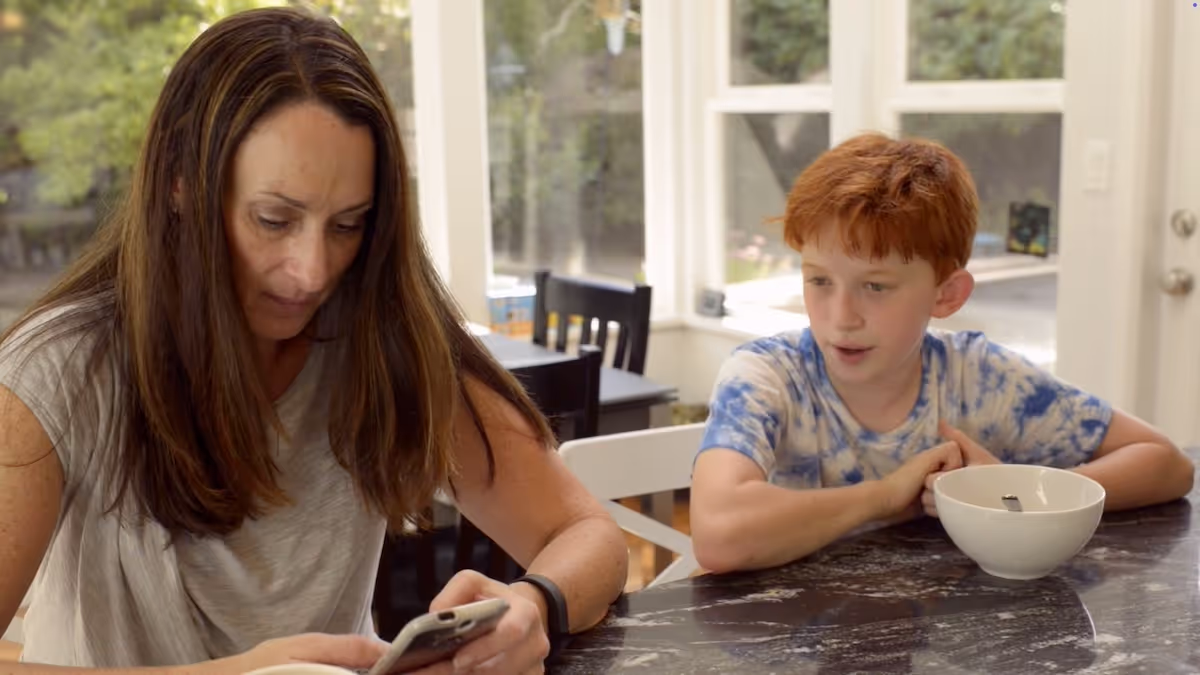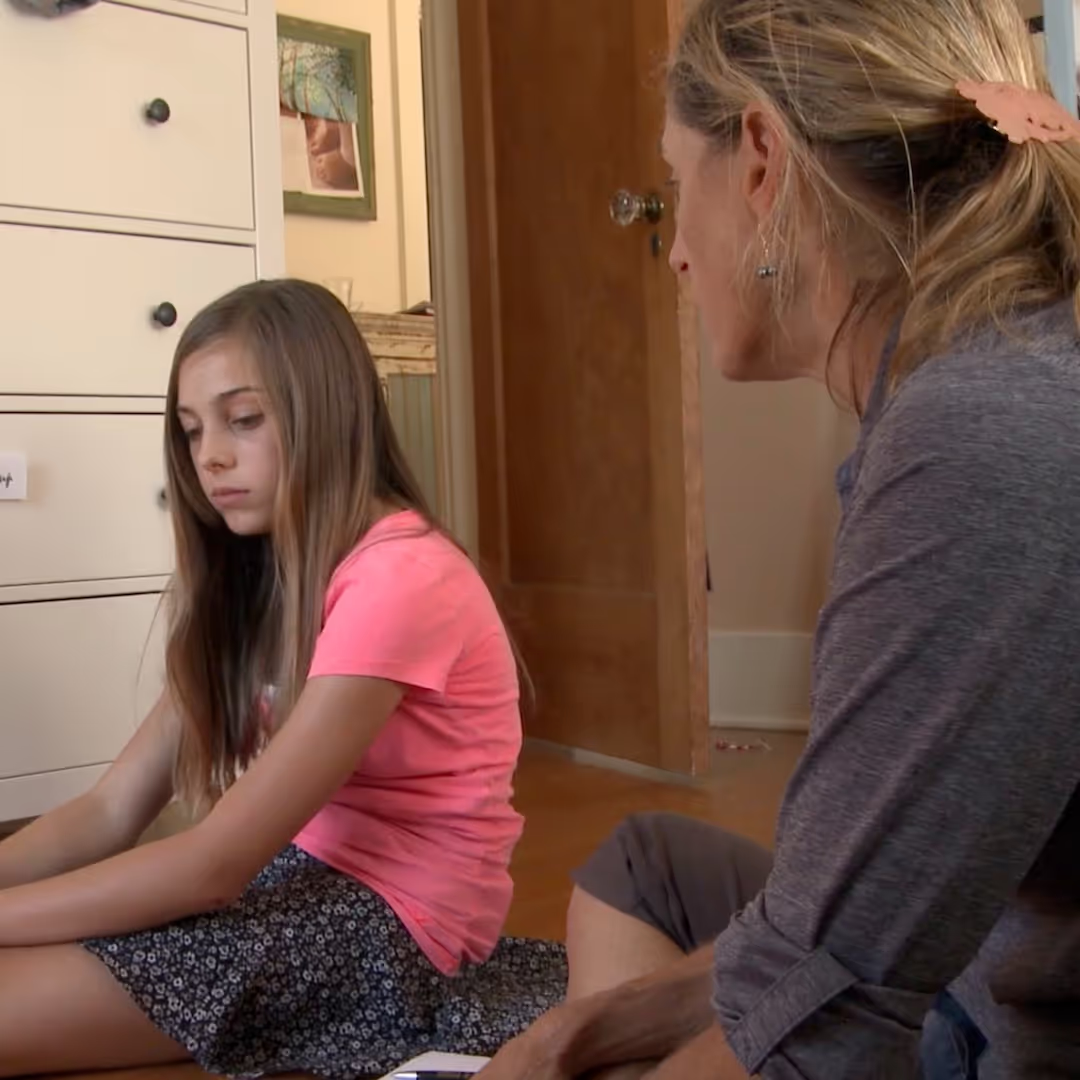


I find this statistic staggering: thirty percent of adults and the same percentage of youth report that they argue daily about screen time at home. That is millions of kids, teens, and parents fighting every single day about screen issues and many millions more who fight often, though not daily.
Rather than constantly repeating, “Time to shut it off,” why not have your wifi at home set to automatically turn off at a specific time. Circle, for example, is a device that enables you to set individual filters and wifi access times on all your devices. With the Circle app, you can monitor data usage times for all the apps on your families’ phones. Some internet services like Xfinity also allow customers to set internet access times and limits for specific computers. Still, I always suggest that phones be put away at bedtime because kids are constantly finding workarounds to mobile data control apps.
Think about the upsides of arguing. I have been reviewing the research around parent-teen conflict and have found some “silver linings” to consider:
There is a study (3rd reference on the link) that examined happiness and scarcity where college students were instructed to imagine they had only one month left in the place they lived. The control group did not get this instruction. After a month, the students that imagined time was coming to an end had branched out and done more interesting things and saw more people they cared about than the control group had. Why not try that with your family?
1. Just a reminder, but I always recommend starting each TTT conversation by everyone saying something positive about tech in their lives. This helps kids remember that we really do appreciate the countless benefits of the tech revolution and that we really do understand why they want to be on screens so much. For me, this week my positive is how much I love that I can access research studies so easily via Google Scholar (when it is only a study abstract I still have to get the full article, but as a start, Google Scholar is wonderful). What is something each of you loves about tech?
2. What are things you argue about regarding tech?
3. When are your arguments productive — when do they work for you vs. when are they just downright annoying, repetitive, etc.?
4. What devices might help create better tech limits/balance in your home?
5. If you had only one month left to live where you currently live, what would you want to do as a family? Now make a plan to really do one or some of those things this month!
We would love for you to share this TTT any way that works for you, whether that’s on social media or via a newsletter. If you want to send it out in your newsletter we just ask that you credit us and link to our website, and let us know at lisa@screenagersmovie.com.
HOST A SCREENING to help spark change.
FIND EVENT LISTINGS
Do you organize professional development in schools? We now have a 6-hour, 3-part training module. Request more information here Professional Development.
Stay in touch with the Screenagers community on Facebook, Twitter and leave comments below.
Learn more about showing our movies in your school or community!
Join Screenagers filmmaker Delaney Ruston MD for our latest Podcast

Learn more about our Screen-Free Sleep campaign at the website!
Our movie made for parents and educators of younger kids
Learn more about showing our movies in your school or community!
Learn more about showing our movies in your school or community!
Join Screenagers filmmaker Delaney Ruston MD for our latest Podcast

Learn more about our Screen-Free Sleep campaign at the website!
Our movie made for parents and educators of younger kids
Join Screenagers filmmaker Delaney Ruston MD for our latest Podcast
As we’re about to celebrate 10 years of Screenagers, we want to hear what’s been most helpful and what you’d like to see next.
Please click here to share your thoughts with us in our community survey. It only takes 5–10 minutes, and everyone who completes it will be entered to win one of five $50 Amazon vouchers.
I find this statistic staggering: thirty percent of adults and the same percentage of youth report that they argue daily about screen time at home. That is millions of kids, teens, and parents fighting every single day about screen issues and many millions more who fight often, though not daily.
Rather than constantly repeating, “Time to shut it off,” why not have your wifi at home set to automatically turn off at a specific time. Circle, for example, is a device that enables you to set individual filters and wifi access times on all your devices. With the Circle app, you can monitor data usage times for all the apps on your families’ phones. Some internet services like Xfinity also allow customers to set internet access times and limits for specific computers. Still, I always suggest that phones be put away at bedtime because kids are constantly finding workarounds to mobile data control apps.
Think about the upsides of arguing. I have been reviewing the research around parent-teen conflict and have found some “silver linings” to consider:
There is a study (3rd reference on the link) that examined happiness and scarcity where college students were instructed to imagine they had only one month left in the place they lived. The control group did not get this instruction. After a month, the students that imagined time was coming to an end had branched out and done more interesting things and saw more people they cared about than the control group had. Why not try that with your family?
1. Just a reminder, but I always recommend starting each TTT conversation by everyone saying something positive about tech in their lives. This helps kids remember that we really do appreciate the countless benefits of the tech revolution and that we really do understand why they want to be on screens so much. For me, this week my positive is how much I love that I can access research studies so easily via Google Scholar (when it is only a study abstract I still have to get the full article, but as a start, Google Scholar is wonderful). What is something each of you loves about tech?
2. What are things you argue about regarding tech?
3. When are your arguments productive — when do they work for you vs. when are they just downright annoying, repetitive, etc.?
4. What devices might help create better tech limits/balance in your home?
5. If you had only one month left to live where you currently live, what would you want to do as a family? Now make a plan to really do one or some of those things this month!
We would love for you to share this TTT any way that works for you, whether that’s on social media or via a newsletter. If you want to send it out in your newsletter we just ask that you credit us and link to our website, and let us know at lisa@screenagersmovie.com.
HOST A SCREENING to help spark change.
FIND EVENT LISTINGS
Do you organize professional development in schools? We now have a 6-hour, 3-part training module. Request more information here Professional Development.
Stay in touch with the Screenagers community on Facebook, Twitter and leave comments below.
Sign up here to receive the weekly Tech Talk Tuesdays newsletter from Screenagers filmmaker Delaney Ruston MD.
We respect your privacy.
I find this statistic staggering: thirty percent of adults and the same percentage of youth report that they argue daily about screen time at home. That is millions of kids, teens, and parents fighting every single day about screen issues and many millions more who fight often, though not daily.
Rather than constantly repeating, “Time to shut it off,” why not have your wifi at home set to automatically turn off at a specific time. Circle, for example, is a device that enables you to set individual filters and wifi access times on all your devices. With the Circle app, you can monitor data usage times for all the apps on your families’ phones. Some internet services like Xfinity also allow customers to set internet access times and limits for specific computers. Still, I always suggest that phones be put away at bedtime because kids are constantly finding workarounds to mobile data control apps.
Think about the upsides of arguing. I have been reviewing the research around parent-teen conflict and have found some “silver linings” to consider:
There is a study (3rd reference on the link) that examined happiness and scarcity where college students were instructed to imagine they had only one month left in the place they lived. The control group did not get this instruction. After a month, the students that imagined time was coming to an end had branched out and done more interesting things and saw more people they cared about than the control group had. Why not try that with your family?
1. Just a reminder, but I always recommend starting each TTT conversation by everyone saying something positive about tech in their lives. This helps kids remember that we really do appreciate the countless benefits of the tech revolution and that we really do understand why they want to be on screens so much. For me, this week my positive is how much I love that I can access research studies so easily via Google Scholar (when it is only a study abstract I still have to get the full article, but as a start, Google Scholar is wonderful). What is something each of you loves about tech?
2. What are things you argue about regarding tech?
3. When are your arguments productive — when do they work for you vs. when are they just downright annoying, repetitive, etc.?
4. What devices might help create better tech limits/balance in your home?
5. If you had only one month left to live where you currently live, what would you want to do as a family? Now make a plan to really do one or some of those things this month!
We would love for you to share this TTT any way that works for you, whether that’s on social media or via a newsletter. If you want to send it out in your newsletter we just ask that you credit us and link to our website, and let us know at lisa@screenagersmovie.com.
HOST A SCREENING to help spark change.
FIND EVENT LISTINGS
Do you organize professional development in schools? We now have a 6-hour, 3-part training module. Request more information here Professional Development.
Stay in touch with the Screenagers community on Facebook, Twitter and leave comments below.

Psychologist Jean Twenge explains how parental controls can support healthier tech use by protecting sleep, limiting late night device access, and reducing kids’ exposure to content they are not developmentally ready to handle. She discusses why third party parental control tools are often more effective and easier to use than built in options, while acknowledging that no system is perfect. Clear boundaries, combined with technology based limits, can reduce ongoing conflict and make screen time rules easier to enforce.
READ MORE >

Parenting in this digital age is full of challenges. I imagine many of you are nodding in agreement. And when we look for advice online, it can feel like a sea of perfect experts with perfect advice: “Just follow these three easy steps and everything will fall into place.” In this week’s blog, I share a story about a moment with my daughter Tessa that did not go quite as planned but ended up teaching us both something important.
READ MORE >for more like this, DR. DELANEY RUSTON'S NEW BOOK, PARENTING IN THE SCREEN AGE, IS THE DEFINITIVE GUIDE FOR TODAY’S PARENTS. WITH INSIGHTS ON SCREEN TIME FROM RESEARCHERS, INPUT FROM KIDS & TEENS, THIS BOOK IS PACKED WITH SOLUTIONS FOR HOW TO START AND SUSTAIN PRODUCTIVE FAMILY TALKS ABOUT TECHNOLOGY AND IT’S IMPACT ON OUR MENTAL WELLBEING.
